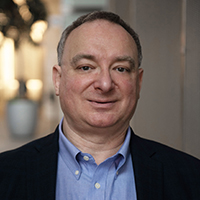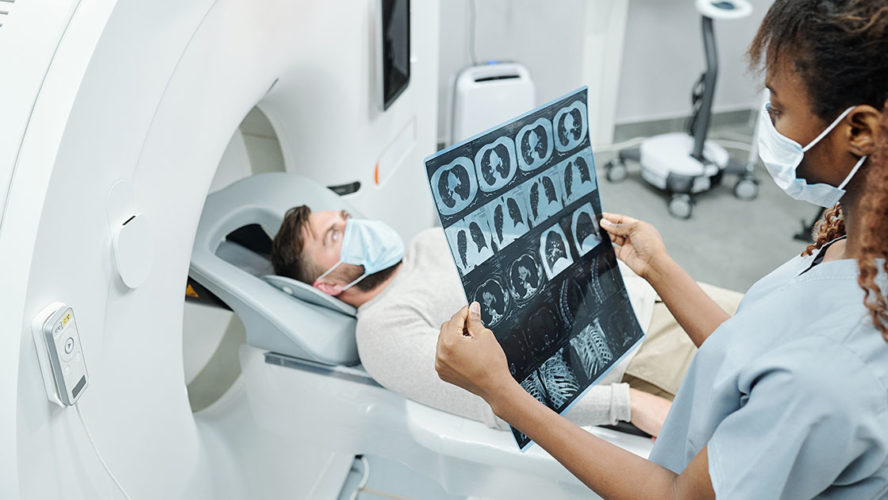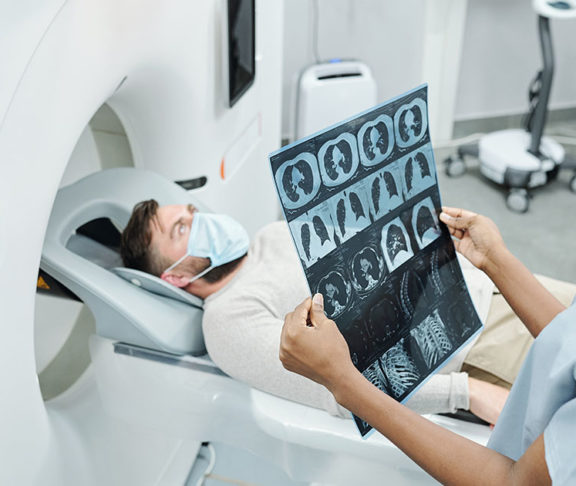
Dr. Laszlo Radvanyi
President & Scientific Director, Ontario Institute for Cancer Research
For a woman with dense breast tissue, a mammogram may not be the most effective means to test for breast cancer. Yet, for the majority of women a mammogram is the best option. This is a perfect example of the need for personalized options in oncology — and why the Ontario Institute for Cancer Research (OICR) is funding Dr. Martin Yaffe at the Sunnybrook Research Institute. Dr. Yaffe is developing a screening tool that uses image analysis and artificial intelligence to determine which women should receive an alternative screening. The desired result is that more women will get the screening they need to detect breast cancers early and that money will be saved in not doing tests on those who won’t benefit.
This is just one example of how Ontario cancer researchers are focusing on projects that look at providing the right type of therapy to the right patient at the right time. While for years the focus in cancer treatment was to remove or shrink a tumour using as much force and toxicity as needed, personalized medicine can provide more precise and tailored therapies that look specifically at the individual case and have fewer side effects as a result.
Improved understanding of cancer at a molecular and cellular level has shown that different individuals, even those with the same type of cancer, have different histological types. In other words, no two breast cancers — or any other type of cancer — are really the same.
“The future of oncology is going to be developing personalized therapies where you’re treating each unique patient as having a unique cancer,” says Dr. Laszlo Radvanyi, OICR’s President and Scientific Director.
For OICR, this has meant adapting the organization’s strategic plan to focus on areas that support personalized medicine. OICR’s Adaptive Oncology theme, which this month announced funding for three new studies, was developed to fund research that anticipates and counters tumour evolution by administering the most appropriate therapies at the right time. It has brought together researchers, like Dr. Yaffe, with expertise in genomics, bioinformatics, machine learning, imaging, robotics, and histopathology, in pursuit of practical ways to characterize the diverse properties of tumours and develop clinical tools to adapt treatment strategies accordingly.
“Then that’s synchronized with our other research streams, in which we support the development of new cancer therapeutics, clinical trials, and preclinical studies aimed at this earlier cancer space in terms of detection and developing diagnostic biomarker tools for better patient selection for therapies,” explains Dr. Radvanyi.
As the tools used to study tumours become more sensitive, researchers can tell what type of mutations or proteins are developing. This is helpful knowledge in determining ways to target the tumour. “You just can’t blindly develop therapeutics,” says Dr. Radvanyi. “You must try to understand the cancer at an earlier stage, then more proactively intervene in a very targeted way, understanding the unique phenotype and genotype of each patient’s tumour, and then exploiting the most effective therapies.”
While many of these research projects are in very early stages, the speed of progress has been greatly helped by recent funding and a push for more collaborative work across the province. Working together, Ontario’s world-class researchers are poised to optimize and advance personalized cancer innovations.



